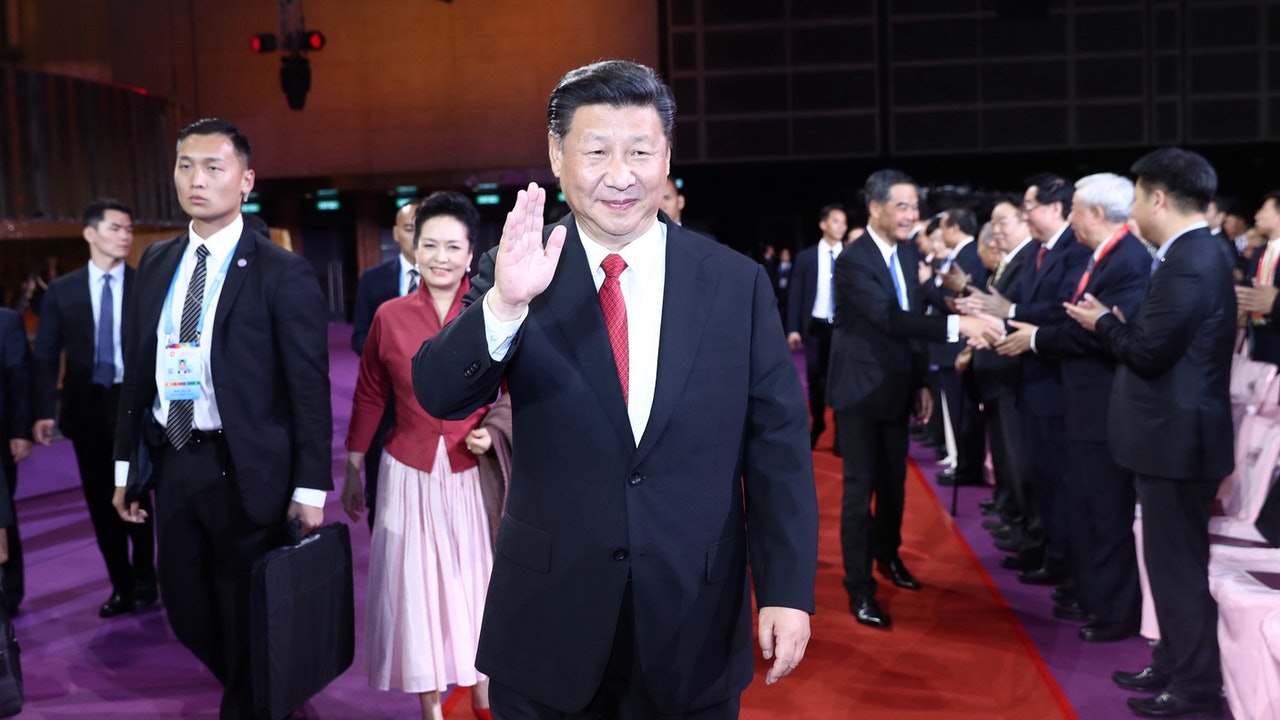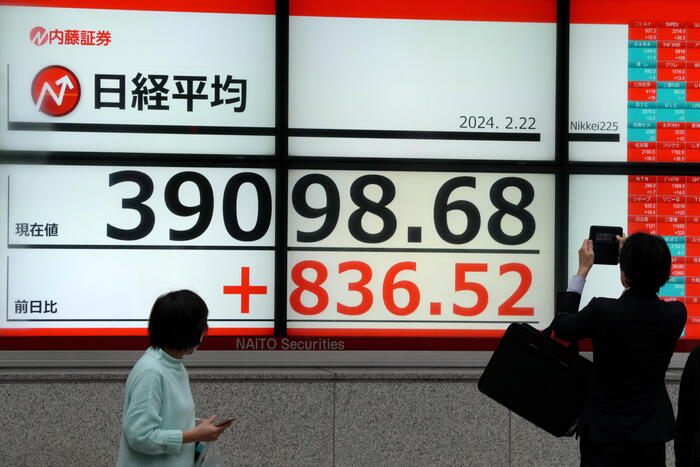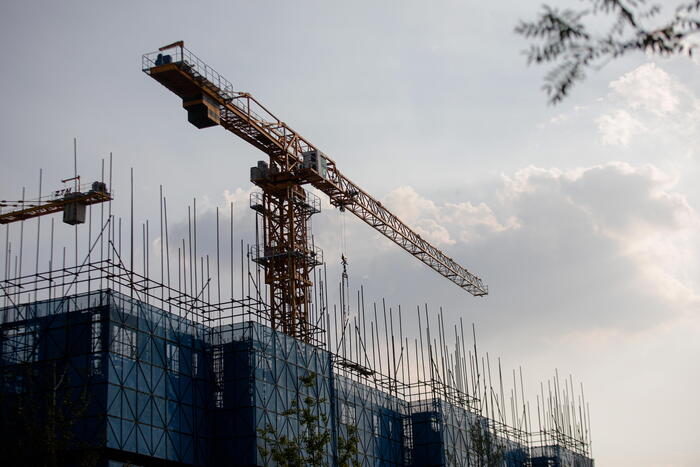According to Xinhua News Agency on June 25, Xi Jinping, general secretary of the CPC Central Committee, state president and chairman of the Central Military Commission, will attend the celebration of the 25th anniversary of Hong Kong's return to the motherland and the inauguration ceremony of the sixth government of the Hong Kong Special Administrative Region.
Taking into account the epidemic situation, although many media are still speculating on whether "attendance means arriving in Hong Kong", in itself, there are at least three meanings worthy of attention.
First of all, the anniversary of the return of Hong Kong, which falls on every fifth and tenth day, is also the inauguration ceremony of the new government of the SAR. Therefore, it has been the practice for the top leaders of the country to attend the celebrations in Hong Kong since the return of the country, but this year is the 25th anniversary, which is outside the practice , also added a layer of meaning, because Deng Xiaoping promised "no change for 50 years" and reached the middle stage.
Why is the "fifty years unchanged" mid-term moment unusual?
On the one hand, it is the symbolic meaning of the link between the previous and the next;
Based on this connection and comprehensive review, the 25th anniversary is different from "summarizing the previous five years" and "focusing on the next five years" on the occasion of the fifth, tenth, fifteenth and twentieth anniversary. The thinking of the problem is placed in the dimensions of "the past twenty-five years", "the next twenty-five years", and "what to do after 2047", which is why Xi Jinping's speech has attracted much attention.
On December 19, 1984, Deng Xiaoping met with British Prime Minister Mrs Thatcher, expounding the concept of "One Country, Two Systems".
(VCG)
"Hong Kong 01" published an article in November last year, "Questioning Hong Kong's "Remaining Issues" in the Mid-Term of "Fifty Years of Change". The reflections and summaries of the past are also the premise and foundation for Hong Kong to set off again.
Secondly, the meaning of such symbols and nodes is not only due to the consistent political tradition of the CCP, but also in response to the reality of Hong Kong. When the "fifty years of unchanged" has reached the mid-term, coupled with the major and small events that have occurred in Hong Kong in the past few years, People can't help but ask and wonder: Fifty years from now, will "One Country, Two Systems" still be sustainable?
Xia Baolong, vice chairman of the National Committee of the Chinese People's Political Consultative Conference and director of the Hong Kong and Macao Affairs Office of the State Council, said when meeting with members of the National Committee of the Chinese People's Political Consultative Conference in Hong Kong that "fifty years of change" is a philosophical concept, not a number, as long as "one country, two systems" can be implemented correctly The direction is steady and far, and it will not change.
The Chairman of the Basic Law Committee, Shen Chunyao, also mentioned in his video speech at the Basic Law Legal Forum on May 27 that "one country, two systems" will remain unchanged for 50 years, but it should be understood as "unchangeable" in the first 50 years, and after 50 years it will be "unchangeable". No need to change."
Xia Baolong emphasized at the Hong Kong and Macau seminar on February 22, 2021, to ensure that "patriots rule Hong Kong".
(Chinese Political Consultative Conference Network)
Whether it is Xia Baolong's "philosophical concept" or Shen Chunyao's "visualization", they are still on the extension line of Deng Xiaoping's discussion.
According to Chen Hongyi, Chair Professor of Constitutional Law of the Cheng Chen Lanru Foundation of the Faculty of Law of the University of Hong Kong, discussing the sustainability of "one country, two systems" has prerequisites, namely "political stability, social harmony, and economic prosperity". "Imagine if we are now In the autumn of 2014, "Occupy Central" was in full swing, then we should be very pessimistic about the sustainability of one country, two systems in Hong Kong; similarly, if we are now in the autumn of 2019, we see As the riots in the Nine New Territories intensify, we will definitely feel that one country, two systems in Hong Kong is unsustainable."
With the enactment of the National Security Law in Hong Kong to curb violence and chaos, and the revision of the electoral system to block the risk of side-by-side governance, the three elections under the new electoral system went smoothly, and the discussion on the sustainability of "one country, two systems" has the foundation and prerequisites.
It can be said that on the 25th anniversary, we have the right time, place, and harmony to conduct forward-looking research and judgment on Hong Kong's "second destiny".
Xi Jinping's attendance at the Hong Kong celebration this time, especially his speech during the ceremony, will undoubtedly point out the general direction for such questions and discussions, and make new political commitments.
In the end, although according to the official statement, Hong Kong has "changed from chaos to governance", and the next goal is "from governance to prosperity", but back to the political reality, Hong Kong now, although it seems "not disorderly", Ma Zhao ran , dance and dance, but it has not really "changed from chaos to governance", the haze of the revision of the bill is still there, the impact of the epidemic is still continuing, the cognitive traps left over from colonial rule are still there, fear of the Communist Party, anti-China emotions And the soil is still there.
The protracted turmoil over the amendments has thoroughly exposed Hong Kong's intractable problems and contradictions.
(AP)
Facing the unprecedented changes in the world in a century, what is Hong Kong's role and position?
How can we "give full play to our own strengths and contribute to the needs of the country"?
How can Hong Kong better integrate into the overall national development?
Hong Kong, which has experienced the impact of large and small storms, urgently needs such a sense of direction and certainty, and this is also the focus of Xi Jinping's speech to Hong Kong this time.
A few days ago, some institutional news indicated that Xi Jinping will deliver an important speech on the development of "one country, two systems". One of the major focuses is Hong Kong's innovation and technology. In particular, attention should be paid to the "Nansha Plan" recently issued by the central government.
Looking back at the past 25 years, not only the changes in Hong Kong itself have exceeded many expectations, but the changes in China behind the changes in Hong Kong have also caught the whole world by surprise.
When people look back and summarize today, although they rationally know that history has no ifs and cannot be assumed, they can’t help feeling emotionally: If the “8.31” plan in 2015 had not been dramatically rejected, would Hong Kong be different today?
If the Hong Kong government did not start to amend the Fugitive Offenders Ordinance in 2019, would Hong Kong be different today?
In addition to many contingencies, Hong Kong under "One Country, Two Systems" is doomed to be in a corner between socialism and capitalism.
Next, in the second half of the 50-year-old "one country, two systems" policy, how Hong Kong will continue to play the role of an important testing ground for China to go global is still a long way to go, and it is still irreplaceable.
The next "Hong Kong-Zhuhai-Macao Bridge"?
Is the "Golden-Xiamen Bridge" a "colonial" reflecting Taiwan and Hong Kong with split personalities?
25 years after the return of the word, the meaning of the difference is very different. Has Hong Kong's politics been "mainlandized"?
Overturn history or set things right?
Historians reveal the logic behind "Hong Kong non-colonial"



/cloudfront-eu-central-1.images.arcpublishing.com/prisa/3I74UEXLYRBBRPGPSGWNN6WXH4.jpg)



